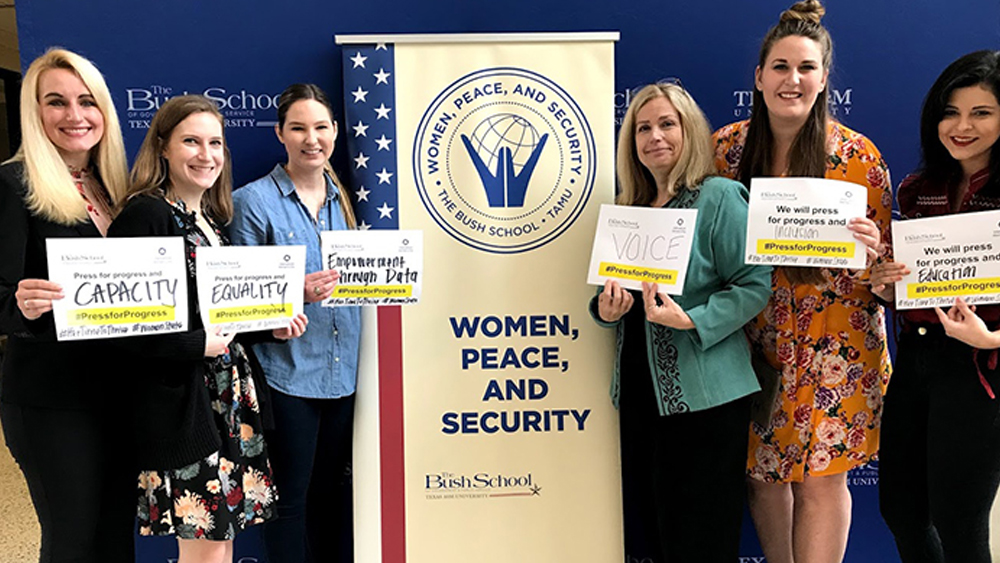
As women around the world celebrate International Women’s Day on March 8, 2018, there are data demonstrating that true gender parity will not be a reality for many years. The good news is there is now global activism for women’s equality fueled by movements like #MeToo, #TimesUp, and more. Women are making positive gains, and there is a strong and growing movement of advocacy, activism, and support.
However, women around the world still face an ever-present security threat. These threats to women’s security are felt at all levels of government and in every nation. Around the world, women endure a variety of experiences in their lifetime. Thirty-five percent of women have experienced physical or sexual violence, and more than 750 million women and girls worldwide were married before their eighteenth birthday, according to the UN. As the world prepares for International Women’s Day, it is important to acknowledge the work being done on these vital issues.
The Bush School of Government and Public Service at Texas A&M University is home to the Program on Women, Peace and Security (WPS) that was established in 2015. The WPS Program seeks to influence public policy debate and policy decision making. Within WPS, is the WomanStats Project, which functions as the research arm of the program. Dr. Valerie Hudson developed this project, a nation-by-nation database on women.
“At the WomanStats Project, we believe the fate of nations is tied to the fate of women,” Hudson said. “Our research project aims to make that linkage visible and demonstrable.”
The database is the most comprehensive database on the status of women worldwide today and includes over 360 variables for 176 countries. The co-principal investigators on the Project are some of the most preeminent experts in their fields, representing not only US universities but universities in Great Britain, Turkey, and Colombia. Experts and findings from the Project have been called upon by UNWomen, the National Intelligence Council, the House Foreign Affairs Committee, the Senate Foreign Relations Committee, and many other entities.
The Bush School is one of the home institutions of the project, and several Bush School graduate students work as project coders who extract, upload, and scale information on the status of women for the WomanStats database.
One of those students, Kayla McGill, has worked on the project as a coder for over three years and says she’s passionate about the project because she knows it is changing lives and improving understanding of women’s issues around the world.
Another student, Ashley Lovell, echoed similar sentiments about working for the project. “I love being able to work for an organization that does more than just talk about why women matter,” Lovell said. “The WomanStats Project goes one step further and uses statistical analysis to prove why empowering women is a critical component of a nation’s stability and security.”
